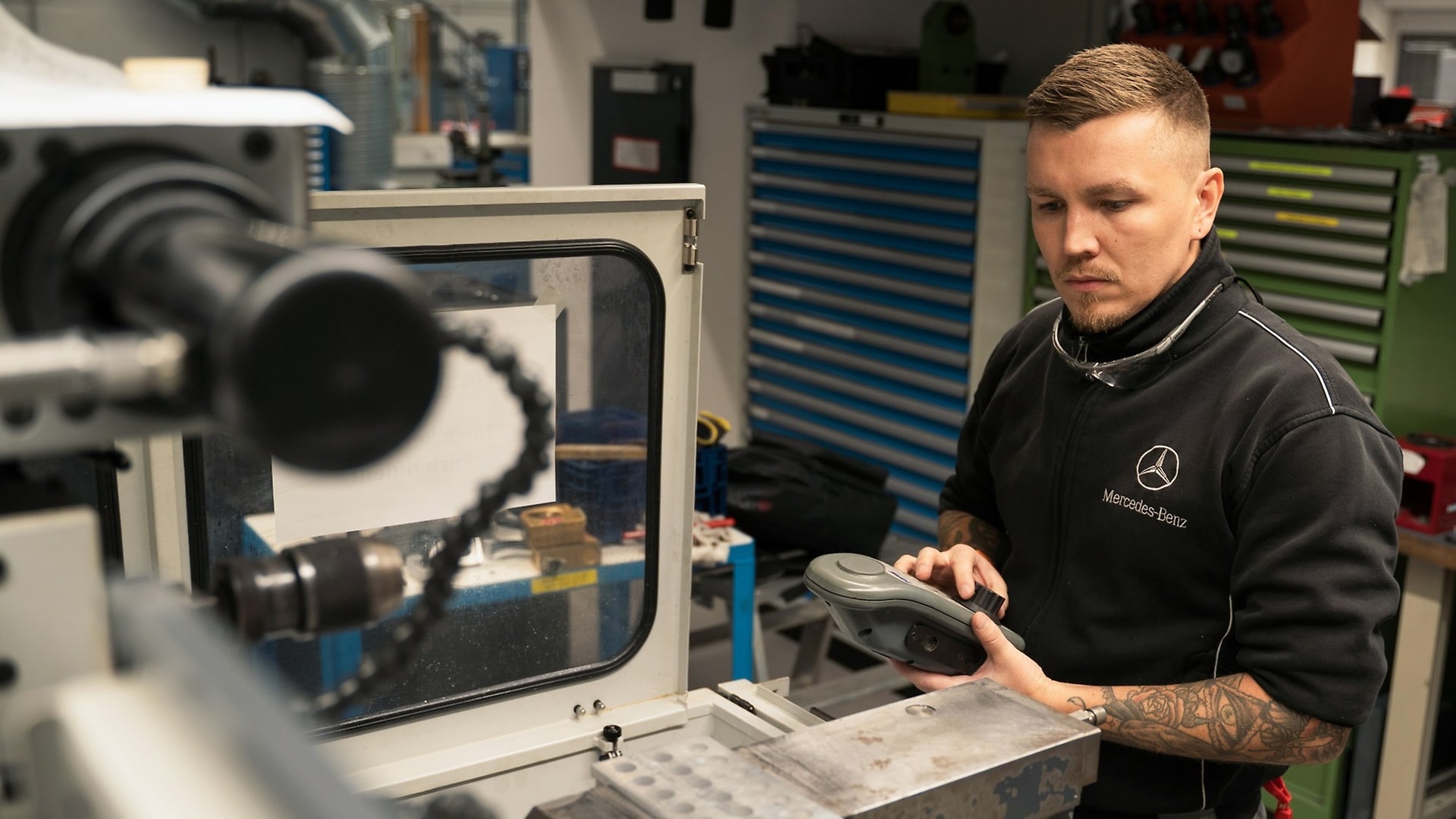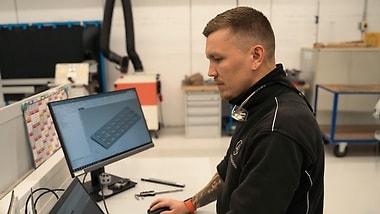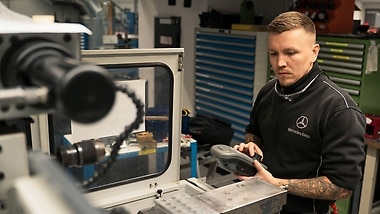Are there any projects that stand out in your memory?
In terms of prototypes, I was fortunate to make an adjustment to the fuel supply in the Mercedes-AMG Project ONE hypercar. And whenever an electric motor underwent development from the first generation to the second, I would adapt the existing axle carrier for the new assembly. What's exciting about my job is that whatever we work on today typically comes out in serial production a few years later.
Your unit is responsible for electric drive configurations. That means you work on one of the most important components for a fully electric future. What does that mean to you?
I think it's great to be part of the e-mobility transformation! You learn the most when you're there from the start. Our tests yield findings that are used for continuous development. When I finish work for the day and walk out the Untertürkheim plant, I pass by the Mercedes-Benz Museum. Sometimes, it makes me think about how many innovations have been introduced for mor than 130 years. I'm proud to be instrumental in electrification.
After training to become an industrial mechanic specialising in machining technology, you held several positions in Production. What brought you to Research & Development?
In 2019, I had the opportunity to initially transfer to the unit on a temporary basis for three years. It was not an easy decision for me to apply for a new job with new subject areas and in a new unit after eight years in Production. Looking back, I can say the decision was spot on! It has introduced me to exciting topics. I find it interesting to be able to see development as a whole in discussion with the specialist units. I really can only recommend being brave, seizing opportunities and daring to try something new!
,xPosition=0,yPosition=0)




,xPosition=0.5,yPosition=0)